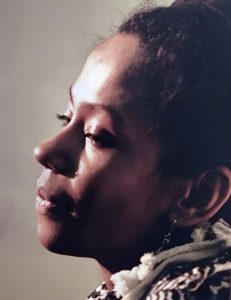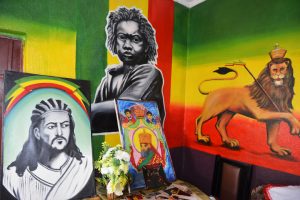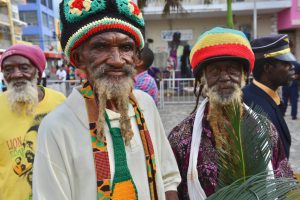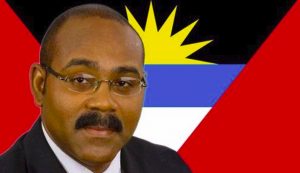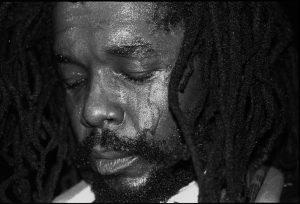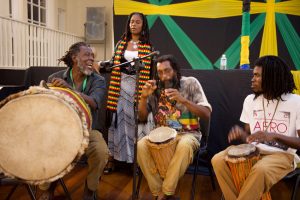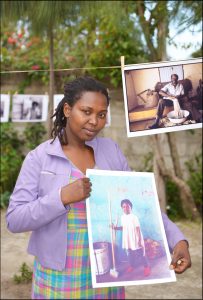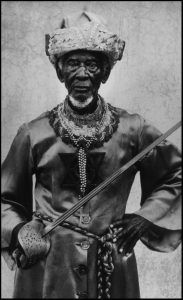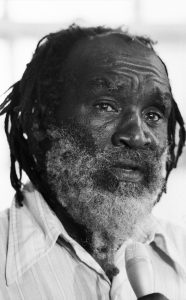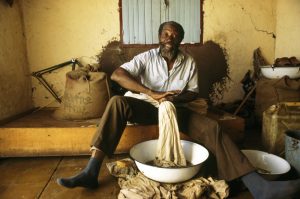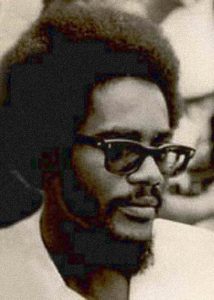Rastafari
Aleema Gray on pioneer Rastafari filmmaker D Elmina Davis
04 January 1995
“WHAT does it mean to be Black? What does it mean to be a Black woman? And what does it mean to be a Black Rastafari woman?” In this essay, curator and academic Aleema Gray re-evaluates D. Elmina Davis’s 1988 documentary film Omega Rising Women of Rastafari in the context of the 1980s and the British Rastafari movement.
Rastafari is a valid religion, Catholics are told
19 January 1982
IT WAS a radical step: the Catholic Commission for Racial Justice, set up to advise Roman Catholic Bishops in England and Wales on how best to develop its ministry in a multicultural society, said they should start by recognising Rastafari as a valid religion.
Horace Campbell on Coral Gardens, the Rastafari and Jamaican Independence
12 April 2013
THIS powerful testimony by Jamaican-born academic and writer Horace Campbell was written to commemorate the 50th anniversary of the Coral Gardens uprising. He combines his personal recollections and memories of that fateful Easter weekend with a penetrating analysis of the deep-seated causes of the conflict. He concludes by celebrating the dedicated Rastafari who continue to carry forward the messages of peace, truth and love as a holding operation until new forces emerge to fully overthrow the Babylonian system.
Peter Tosh at the One Love Peace Concert: the same Bucky Massa business
22 April 1978
THE ONE LOVE Peace Concert was an attempt to bring an end to the political civil war in Jamaica caused by rival gangs supporting the two major political parties – the JLP and the PNP. More than 35,000 people crowded into Kingston’s National Stadium to hear 16 of the country’s top reggae acts. The evening culminated in Bob Marley’s performance when he forced rival leaders Michael Manley and Edward Seaga to join hands. Although this act grabbed most of the headlines at the time, many people believe it was Peter Tosh who made the most memorable contribution to the evening.
Report on the Nyabinghi Order by Frederico Philos
07 December 1935
THE first recorded instance of the word ‘Nyabinghi’ (1) entering Jamaican cultural discourse that I can discover comes with the publication of an account of the Nya-Binghi Order in Ethiopia and the Congo in The Jamaica Times, published in December 1935, just a few months after Italy had invaded Ethiopia. The article is clearly a crude piece of Fascist propaganda written to legitimise Mussolini’s colonial ambitions in the Horn of Africa. Nevertheless, it was embraced by early Rasta leaders and given an alternative reading and interpretation which led directly to the formation of the Nyabinghi Order of Rastafari in Jamaica.
Shashemene Pioneers Pop-Up Exhibition
14 July 2013
IN 2013, more than 30 years after my first visit, I returned to spend time with the Rasta community in Shashemene, Ethiopia to work with Italian filmmaker Giulia Amati. As part of the project I created a pop-up exhibition of 70 photographs I had taken in 1981. This report is from my diary of that day.
An audience with Joseph Nathaniel Hibbert, Rastafari patriarch
23 July 1983
THIS IS an account of the interview I conducted with Father Joseph Hibbert, one of the first people to proclaim the divinity of Haile Selassie and a key figure in the early development of Rastafari in Jamaica in the 1930s.
Treatise on the Rastafarian Movement by Ras Sam Brown
01 April 1966
RAS SAM BROWN was one of the first Rastafari to publish a manifesto summarising the beliefs of the movement. He first came to public attention during the 1961 election campaign in Jamaica when he formed his Suffering People’s Party. Although he was not widely supported because many Rastas declined to be involved in ‘Politricks’, his influence was widespread and Leonard Barrett’s pioneering 1977 study of the movement, The Rastafarians, relied heavily on interviews with Brown.
Noel Dyer sets out to walk to Ethiopia
17 September 1964
I MET Noel Dyer during my stay in Ethiopia in 1981. One evening, early in February, we sat down in his modestly furnished front room, with just a small oil lamp for light. He scrabbled around in the drawer of his desk, scooped together the last remains of his supply of ganja, built a spliff and started on his tale.
Walter Rodney: The Groundings with my Brothers
18 October 1968
IN THIS excerpt from a speech given in Montréal following his banning by the Jamaican authorities a few days earlier, Walter Rodney, the Guyanese-born academic and activist, warns against being seduced by the myth of a harmonious multi-racial society. He describes how he got real knowledge and understanding from Rastafari, the least regarded, most despised section of society. Finally, Rodney stresses the importance of the black intellectual attaching himself to the activity of the black masses.

